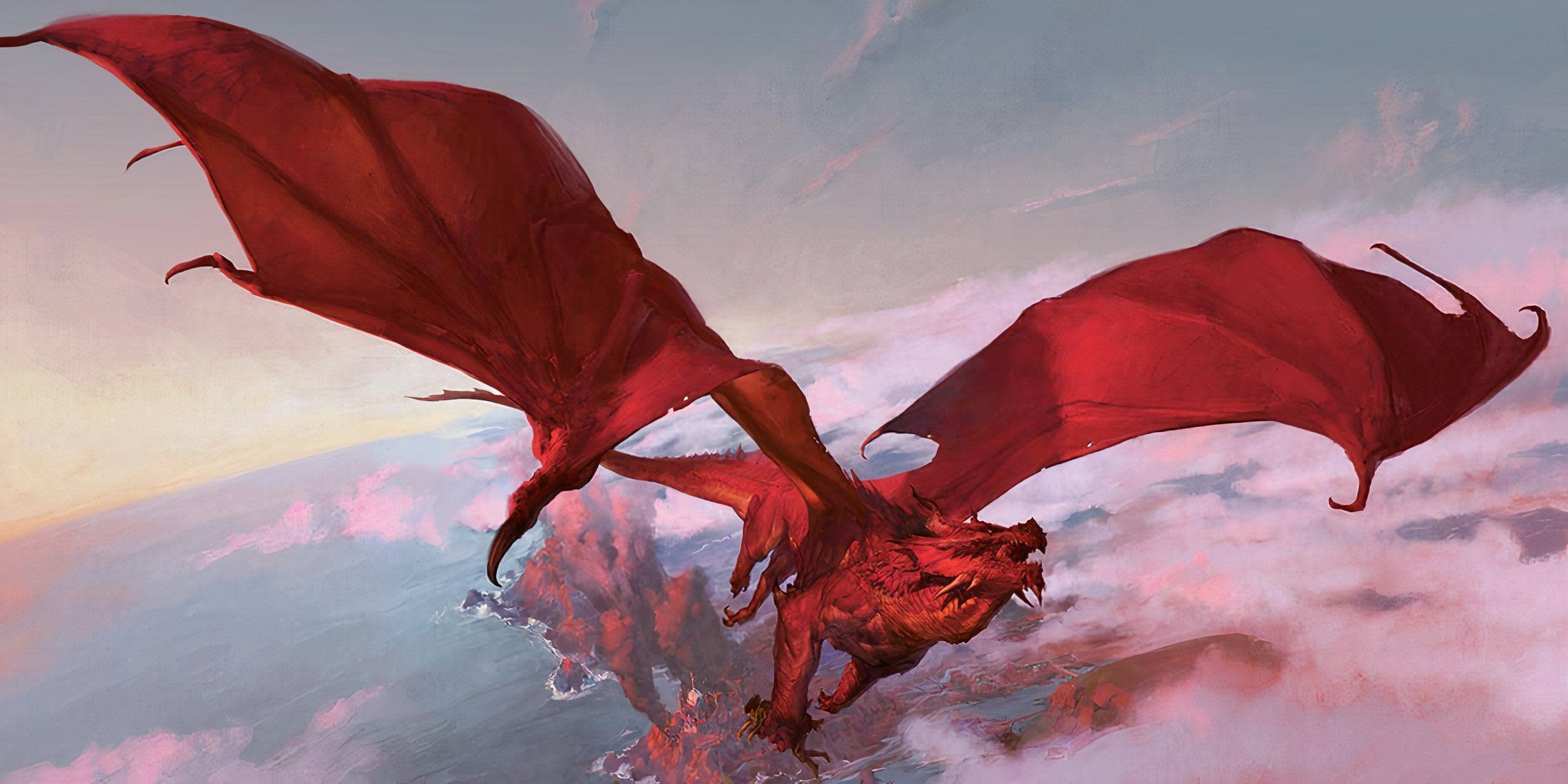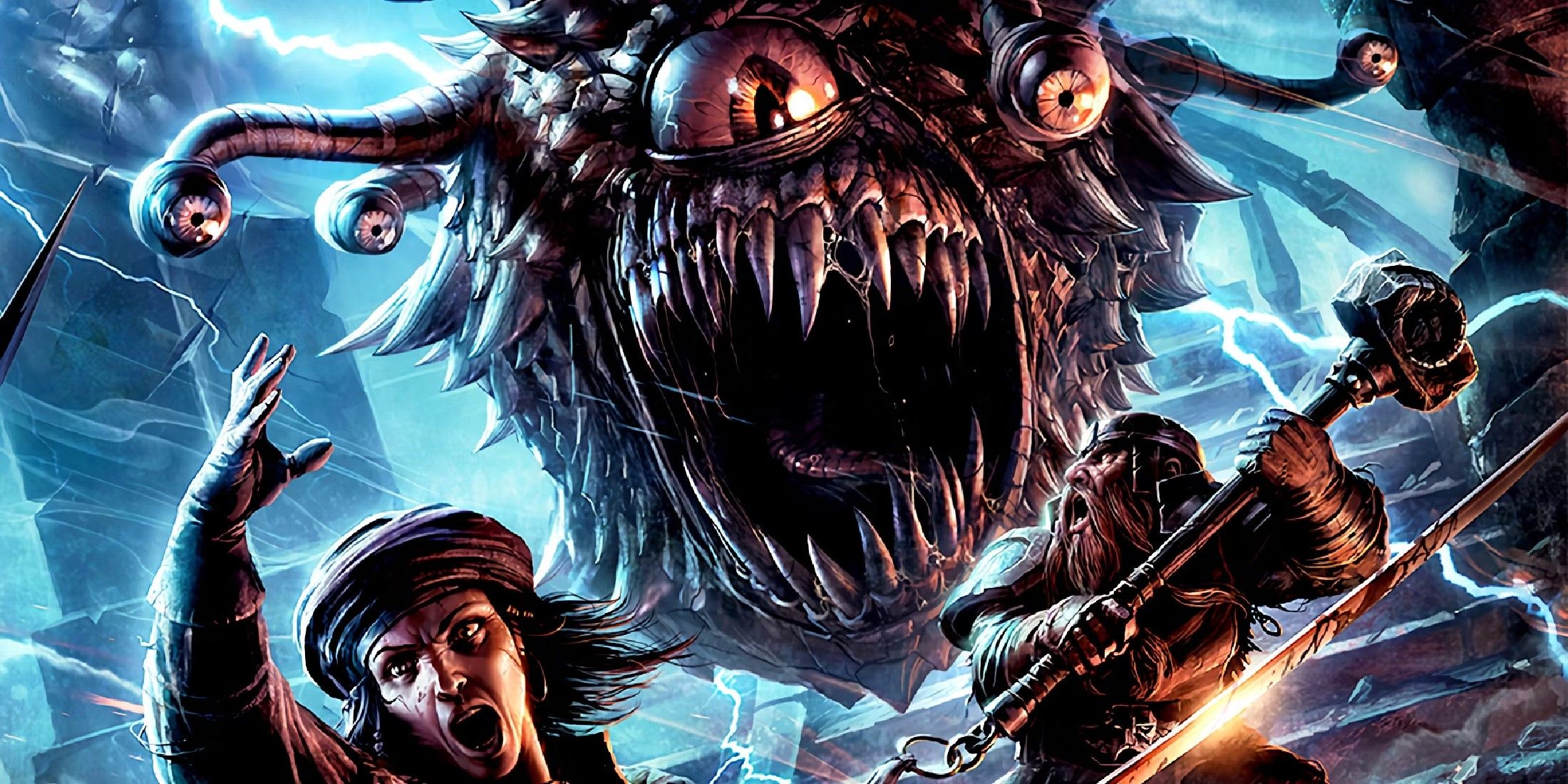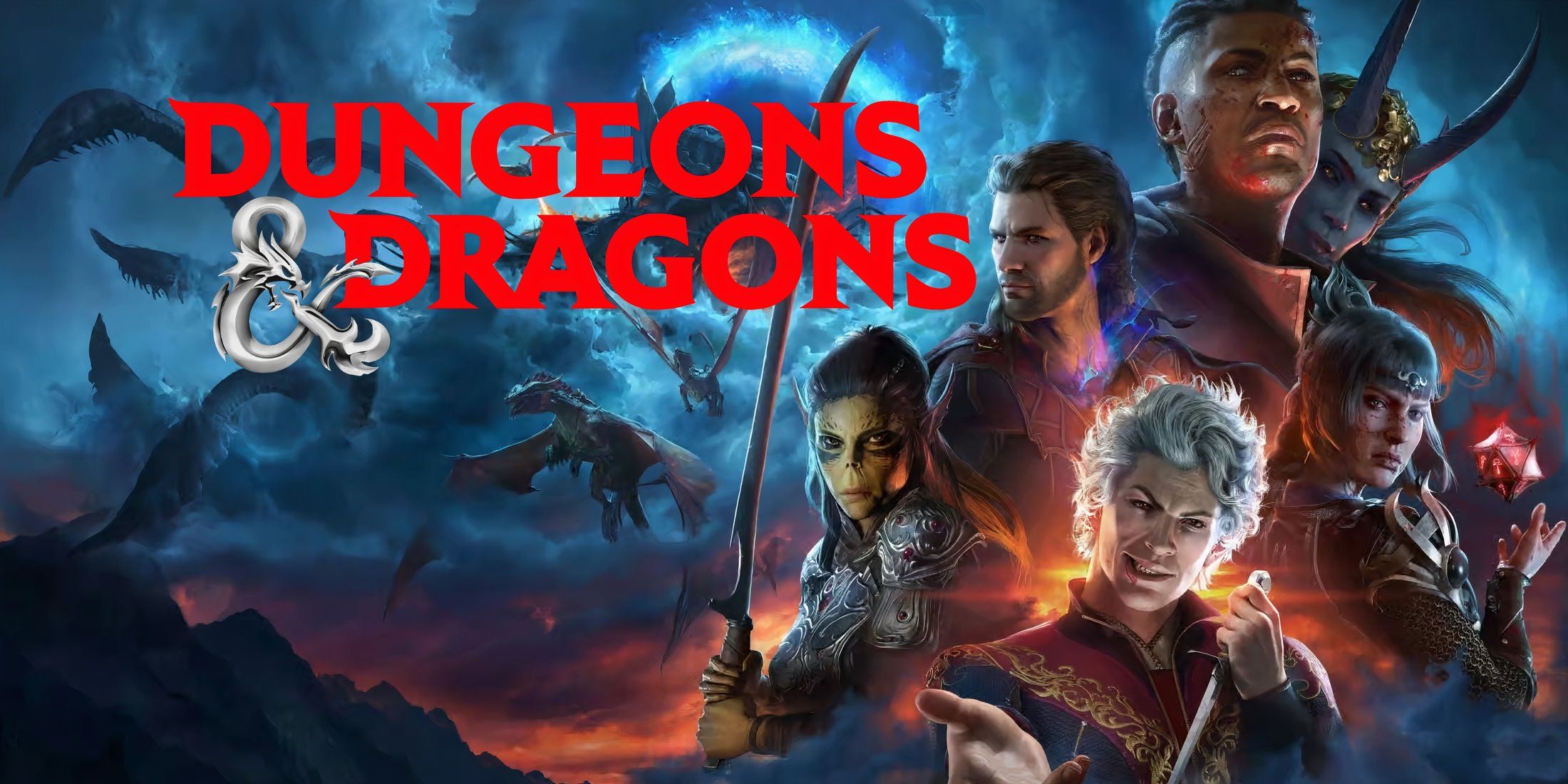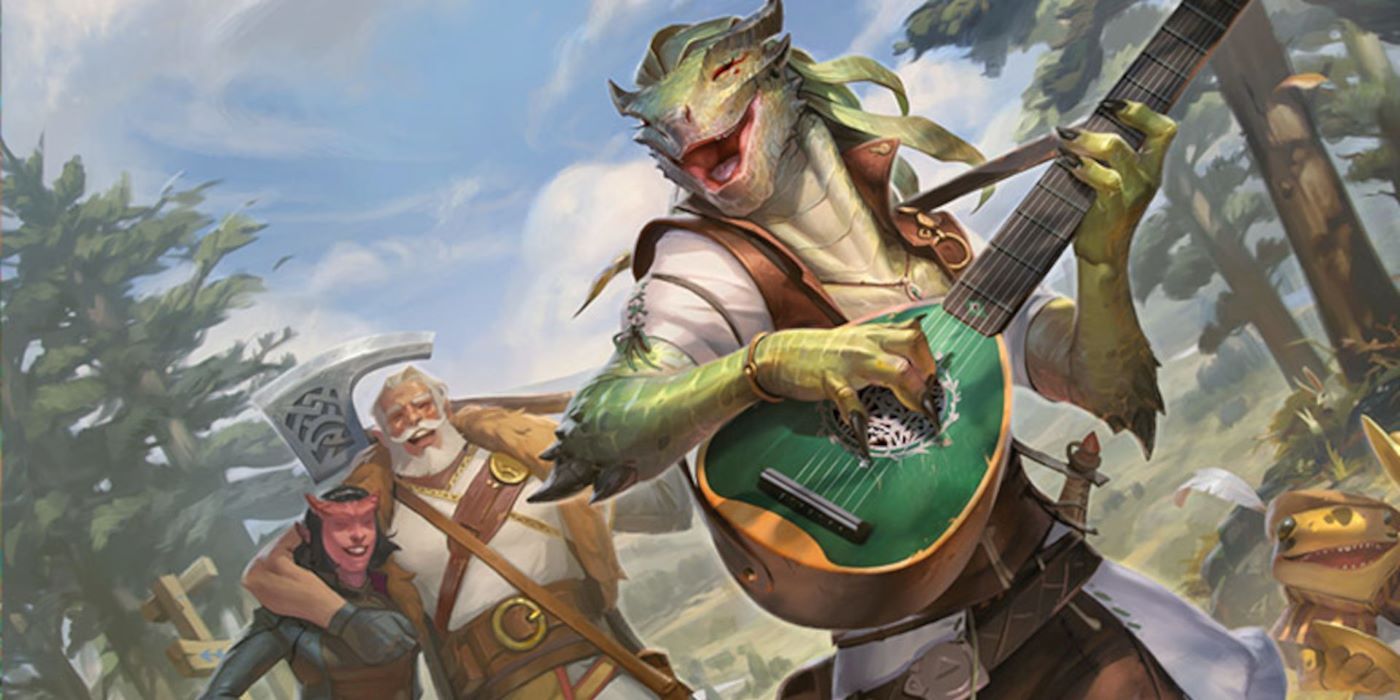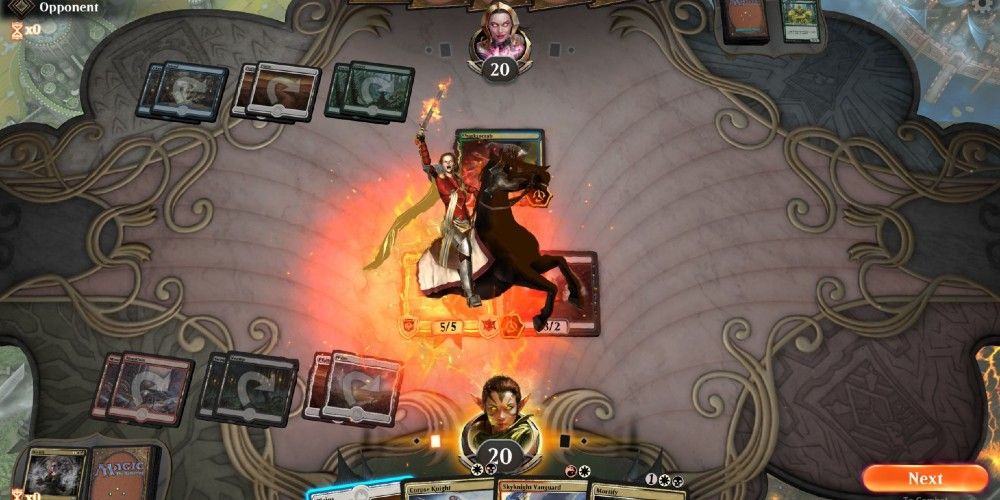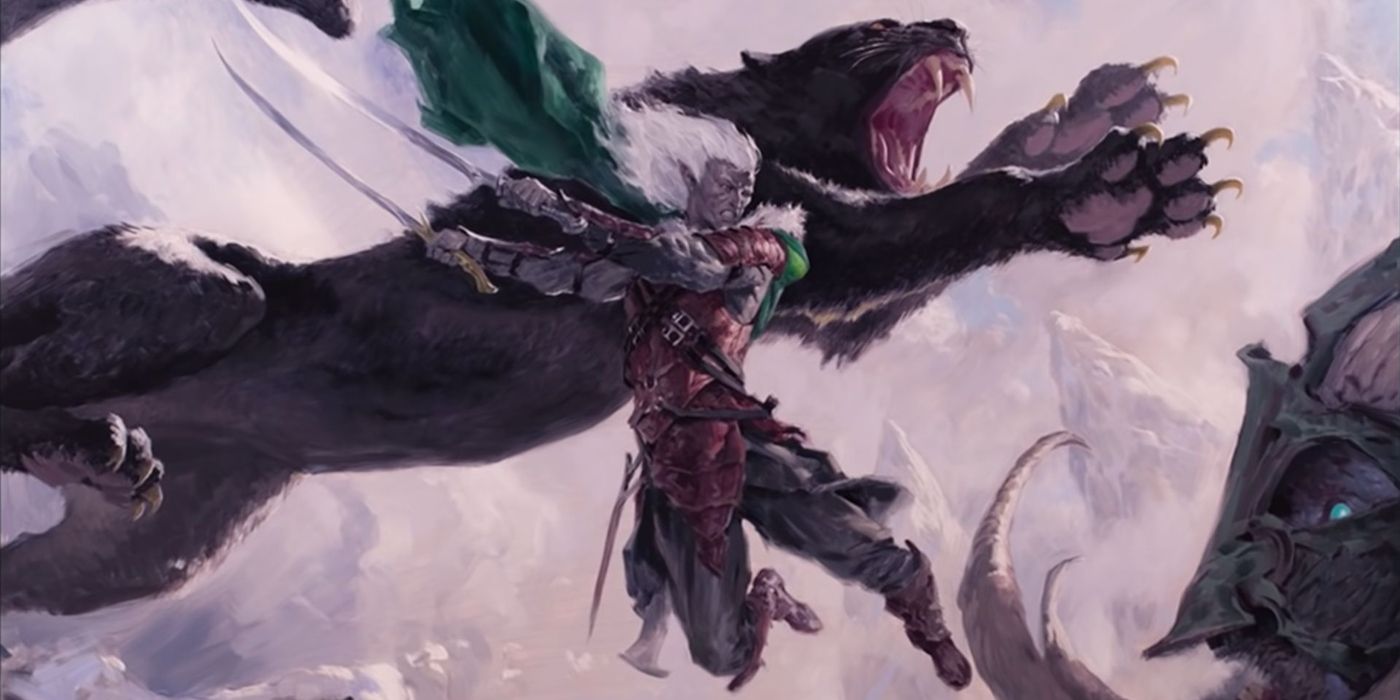Magic: The Gathering has done a lot of crossovers lately, but few are as exciting as the upcoming Dungeons and Dragons crossover set, Adventures in the Forgotten Realms. Since Wizards of the Coast is in charge of both properties, it can make these two classic games mix and match in any way. That freedom has already resulted in some great crossovers, namely the Magic: The Gathering-inspired Dungeons and Dragons sourcebooks. This is the first major crossover in the other direction, and it already looks filled with cards that succinctly embody DnD themes, TTRPG tropes, and even some parts of Dungeons and Dragons gameplay.
The Magic: The Gathering DnD sourcebooks are creative, centering on mechanics like Renown and Boons that change the way DnD is played. It seems natural, then, that Adventures in the Forgotten Realms pushes the boundaries of Magic too. It's filled to the brim with mechanics that would probably never show up in a normal Magic set. Wizards of the Coast proves it has inventive ideas on its hands with many of its Forgotten Realms cards. Magic deserves to keep getting cards of this creative caliber that refresh the game and encourage players to look at deckbuilding differently.
Magic: The Gathering Needs Bold Ideas
New mechanics and keywords are part of the natural cycle of Magic: The Gathering. Almost every new set introduces some function for players to build decks around, or at least revives an old mechanic in search of untapped potential from its earlier appearances. One new function that turned a lot of heads is the Saga, a short-term enchantment that's dense with value. Sagas looked strange when they first got released, but they've proven themselves as a fun new way for Magic to handle one of its most basic card types. Magic: The Gathering improves whenever its developers introduce something that makes players look at the game differently.
Adventures in the Forgotten Realms does exactly that. No previous mechanics compare to Forgotten Realms' dungeons, and the balanced use of DnD's twenty-sided die across a ton of cards in the set shows that there's some room for dice in the card game. If this is how surprising Wizards of the Coast can make every set, then it should try to do so. Magic needs more truly new mechanics like dungeons rather than focusing on reusing keywords or introducing new keywords that only slightly adjust mechanics rather than being truly inventive.
Pushing Magic: The Gathering's Boundaries
It's understandable that some fans are skeptical of Forgotten Realms' dungeons. It's a complicated mechanic that asks players to keep track of a lot of information, and it breaks some Magic conventions. However, Magic is better off with dungeons and similar mechanics than it is without them. It's risky ideas like these that make Magic feel magical. Strange mechanics like this appeal to casual Constructed players, who are a very important part of Magic's fanbase. If Magic: The Gathering's pro scene is really taking a back seat, the least Wizards of the Coast can do to compensate is introduce odd new playstyles that'll be fun to see in more casual play.
Risk-taking is an important part of innovation. Dungeons and Dragons' fifth edition took a risk by greatly simplifying the game, and the result is that millions of people are getting involved, prompting a DnD renaissance. Magic: The Gathering is popular and comfortable enough to take risks and try new ideas like DnD did. Even if Wizards of the Coast doesn't fill every Magic set with mechanics as wild as the Forgotten Realms dungeons, it'd be nice to see that caliber of experimentation more often on the whole. Magic: The Gathering survives because it's constantly evolving. The best thing it can do for its future is continue to push the envelope.
Magic: The Gathering is available now. The Adventures in the Forgotten Realms set releases July 15 for MTGO and Arena, and in paper on July 23, 2021.

